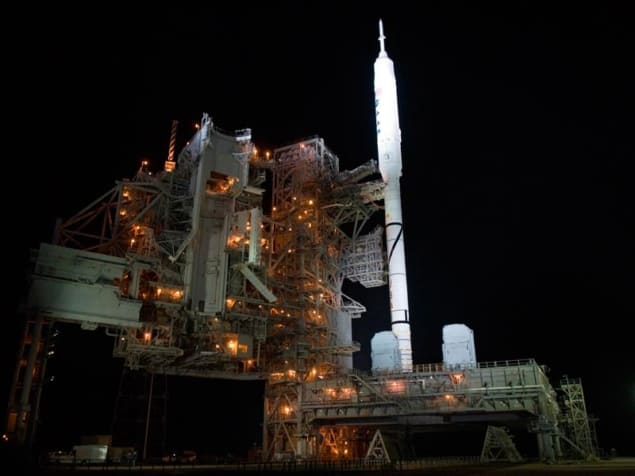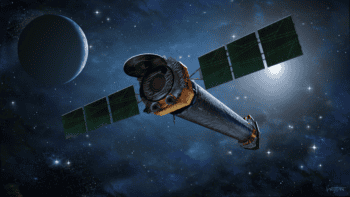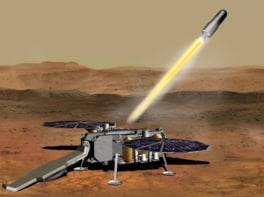
US President Barack Obama has ended plans to return astronauts to the Moon by 2020. The administration’s budget request for the financial year (FY) 2011, announced yesterday, proposes cancelling the Constellation programme – outlined by President George W Bush in 2004 to develop, test and operate spacecraft that will return humans to the Moon by the end of the next decade – and makes no new provision for future manned missions to the Moon or Mars.
In place of Constellation, the Obama administration calls for “a bold new course for space exploration and scientific research” that will extend operation of the International Space Station (ISS) to at least 2020 and rely on commercial launch services to ferry astronauts to the station. According to NASA administrator Charles Bolden, NASA will “invest in critical and transformative technologies [that] will enable our path beyond low Earth orbit through development of new launch and space transportation technologies, nimble construction capabilities on orbit.”
To encourage those initiatives, the administration’s proposed budget gives NASA an extra $6bn over the next five years. For FY 2011, which starts on 1 October 2010, the proposal provides $11bn for NASA’s research budget – an increase of 18.3% over the FY 2010 figure. Obama’s request calls for NASA’s budget to increase to $19bn for FY 2011 and calls for future increases that will take the agency’s budget to $21bn in 2015.
‘Lacking innovation’
The 2011 budget is the first entirely within President Obama’s power. Dismissing Constellation as “over budget, behind schedule and lacking in innovation”, Obama called on NASA to support the commercial spaceflight industry. The proposed budget will provide roughly $50m to a handful of companies to develop commercial support for human spaceflight.
The administration also intends to increase collaboration with other space-faring countries, and to develop new approaches to space exploration. “Imagine trips to Mars that take weeks instead of nearly a year, people fanning out across the inner solar system, exploring the Moon, asteroids and Mars nearly simultaneously in a steady stream of firsts,” Bolden told a press conference. “And imagine all of this being done collaboratively with nations around the world…we can’t underestimate the rich promise of space exploration to draw nations together, and this budget gives us the means and the guidance to build even stronger alliances in the future.”
Norman Augustine, the former chief executive of Lockheed Martin who chaired the panel that provided human spaceflight options for NASA last year, gave the budget proposal guarded approval. “We found that the current Constellation programme was unsustainable and was highly unlikely to get humans to the ISS before its planned de-orbit or back to the Moon until roughly 20 years in the future,” he explains. “While many of us who believe strongly in human spaceflight might have hoped that still further funding would have been possible, this is obviously a demanding period from a budgetary standpoint.”
Budget boosts
The scientific community’s fears that the administration would reduce funding for research proved unfounded. The budget proposal calls for an increase of $824m – a 6.6% increase from the FY 2010 figure – for the three major US science agencies: the National Science Foundation, the National Institute of Standards and Technology, and the Department of Energy’s Office of Science. “Even after adjusting for the expected inflation of 1.1% in the coming year, these focused increases in science and technology R&D promise to accelerate America’s economic advancement and assure America’s position as a global leader well into the future,” says presidential science adviser John Holdren.
In another change of direction, the proposed budget almost trebles (from $18.5bn to $54.5bn) loan guarantees intended to help the US nuclear energy industry build new reactors. The guarantees cover 80% of the costs of building new reactors. Energy secretary Steven Chu has also appointed a commission that will study interim options for storing nuclear waste. The administration had already decided not to pursue the use of Nevada’s controversial Yucca Mountain site as a waste repository.
The budget request, however, is just that: a request. Congress will inevitably demand changes before it approves the budget. The proposals for NASA’s future have already met opposition from representatives of states with heavy investments in the Constellation contracts. Other critics have argued that the administration cannot justify the cost of cancelling the programme – about $2.5bn beyond the $9bn already spent on it.



